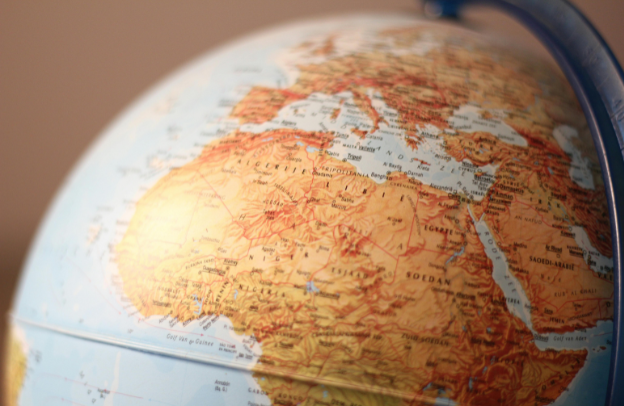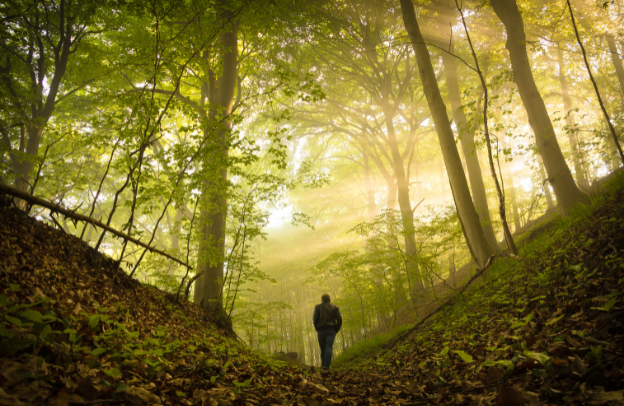The Heartbeat of Africa: Rediscovering the Power of Indigenous Knowledge Systems (IKS)

Have you ever wondered what stories the land whispers to those who listen closely? What if the mysteries of Africa’s landscapes, from towering mountains to deep caves, hold secrets passed down for generations? Or if the traditions that seem “old-fashioned” to many are actually the keys to unlocking a deeper connection to your roots and preserving the land for future generations?
Learn How to Leverage Your Story through our Story to Asset Framework.
Indigenous Knowledge Systems (IKS) are not just remnants of the past; they are the bedrock upon which Africa’s rich heritage is built.
Yet, many in the African diaspora may be unaware of how IKS can revitalize their understanding of the world and guide them back to a deeper cultural connection. It’s time to step away from misconceptions and embrace the wisdom that has nurtured civilizations for millennia.
What Are Indigenous Knowledge Systems (IKS)?
At their core, Indigenous Knowledge Systems are the deep-seated, time-honored understandings of the world cultivated by Africa’s ancestral communities. IKS is a comprehensive, culturally embedded body of knowledge that governs everything from farming practices to social customs, medicinal plants, and spiritual beliefs.
Passed down orally, these systems are intertwined with Africa’s history and landscapes, shaping the way people interact with their environment and each other. It is this knowledge that, for centuries, has ensured the survival of communities through changing seasons, political turmoil, and social evolution.
See also Obehi Ewanfoh’s 46th Birthday Reflection: Celebrating Gratitude, Family, and the Art of Storytelling
In contrast to the perception that IKS is merely superstition, it is a rich treasure trove of ecological wisdom, collective memory, and holistic perspectives.
As the world increasingly turns to sustainability, Africa’s Indigenous Knowledge has proven to be ahead of its time, particularly in areas like land conservation, climate resilience, and healthcare practices.
The African diaspora, whether living on the continent or abroad, can reconnect with their roots through the exploration and preservation of these invaluable systems.
IKS and the Interplay with Tourism: A Win-Win
Consider this: How often do we visit a country, intrigued by its picturesque destinations, unaware that the land itself holds stories—tales shaped by centuries of tradition?
Now think about how Indigenous Knowledge Systems play a role in travel. Indigenous wisdom forms the foundation of many of Africa’s most coveted tourist attractions. Without IKS, these sites might not even exist as they do today.
Take, for example, Zimbabwe’s Kariba Dam—a modern marvel, built to generate electricity for the nation. The creation of this dam was met with unexpected challenges, as workers struggled with persistent mishaps.
What many people don’t know is that the struggles were attributed to the wrath of Nyami Nyami, the river god of the Zambezi River, believed to be a giant snake residing in the waters.
Locals, understanding the significance of appeasing Nyami Nyami, sought the guidance of traditional healers and elders to perform ceremonies, ensuring the river god was placated. Only when IKS was invoked did construction proceed without further disruption.
This fascinating intersection of spirituality, IKS, and modern infrastructure has turned Kariba into a popular tourist destination. Visitors are drawn not only to the dam’s grandeur but also to the rich cultural significance that underpins it.
This harmonious blend of traditional beliefs and modern development is a perfect example of how IKS is vital to the travel industry and cultural preservation.
The Sacred Caves of Chinhoyi: Living History
Now, imagine yourself standing before the ancient caves of Chinhoyi, a place where history, mystery, and sacredness converge. For generations, these caves were the stronghold of powerful local chiefs and a center for rainmaking rituals.
Deep within these caves lies a pool of startlingly clear, blue water. But here’s the thing—no one truly knows how deep it goes. According to local legend, if you throw a stone into the pool, it bounces back.
This eerie phenomenon speaks volumes about the sacredness of the caves, a legacy preserved not only through oral storytelling but also through the living practice of IKS. These caves, integral to the community’s social and spiritual life, are regarded as a natural shrine.
They continue to attract tourists who seek not just adventure, but a tangible connection to the ancestors’ sacred rites.
The ability of IKS to preserve these sacred sites amidst modernity and travel highlights the strength of Indigenous knowledge in safeguarding the environment. The sacredness of the caves is a testimony to how communities have relied on their intimate connection with nature to ensure the survival of both culture and the land.
The importance of such knowledge cannot be overstated in today’s world where environmental degradation and loss of cultural identity threaten the very essence of who we are as a people.
Great Zimbabwe: A Monument to Indigenous Engineering
Few places on Earth capture the essence of human ingenuity and cultural pride like Great Zimbabwe. A fortress made from stone without mortar, Great Zimbabwe stands as a testament to the sophistication of pre-colonial African civilizations.
Yet, some myths, particularly the idea that the Portuguese built the structure, persist to this day. This misconception undermines the accomplishments of the ancestors who created this impressive stone city.
Indigenous Knowledge Systems played a key role in the creation of Great Zimbabwe’s monumental structures. The walls, built using a technique that remains a mystery to modern engineers, have withstood centuries of harsh weather conditions.
How did this knowledge survive through generations? It is through the oral transmission of practical and spiritual wisdom, shared by history custodians and elders.
Today, the Great Zimbabwe ruins are a UNESCO World Heritage site and serve as a powerful symbol of African pride. The Zim bird, or hungwe, a majestic sculpture found at the site, is a national emblem of Zimbabwe, even appearing on the country’s flag.
See also Which Great Ancient African History Mostly Inspires You As An African?
The Zim bird, believed to represent a mystical connection between heaven and earth, is an enduring symbol of the unity and strength of African culture, protected and propagated by Indigenous Knowledge Systems.
The Key Principles of IKS: Harmony, Sustainability, and Wisdom
The power of IKS lies in its principles—values that are just as relevant today as they were centuries ago. Three key values stand out:
Harmony with Nature:
IKS centers around a deep understanding of the environment and its cycles. It teaches sustainable practices in agriculture, medicine, and natural resource management, ensuring that humans live in balance with the earth.
This wisdom is more important than ever in a world facing climate change and environmental degradation.
Community and Collective Responsibility:
IKS emphasizes the importance of the community over the individual. Decision-making is often communal, ensuring that everyone’s voice is heard. This collective approach fosters unity, strengthens social ties, and ensures the well-being of all members.
Spirituality and Ancestor Reverence:
IKS is rooted in spiritual beliefs that guide daily life. Ancestors are revered, and their wisdom is invoked for guidance, protection, and blessings. This reverence helps people maintain a profound sense of identity and purpose in the world.
The African Diaspora’s Role in Preserving IKS
For the African diaspora, reconnecting with IKS offers more than cultural pride—it offers an opportunity to tap into a deep well of wisdom that can address modern challenges.
As you explore these traditions, whether through storytelling, ceremonies, or studying the sacred sites of Africa, you are playing a crucial role in the preservation of this knowledge. This is not just about remembering the past; it is about carrying it forward to guide future generations.
See also Unlocking the Power of Memory: Why Building Strong Memories Matters.
In preserving IKS, the diaspora also has the power to advocate for sustainable practices, the protection of heritage sites, and the celebration of African cultural identity in a global context.
It is a responsibility that cannot be ignored, for IKS is the living thread that connects Africa’s past to its future.
Conclusion: A Legacy to Uphold
The journey of reconnecting with Indigenous Knowledge Systems is not just an academic pursuit or a nostalgic journey—it is a call to action. By embracing IKS, you embrace a worldview rooted in harmony, sustainability, and reverence for the earth and ancestors.
Whether you are a tourist visiting Africa’s sacred sites or a member of the diaspora looking to reconnect with your roots, understanding and preserving IKS is crucial to ensuring the survival of Africa’s cultural and environmental legacy.
As you engage with the knowledge passed down through generations, remember that you are not merely a visitor—you are a custodian of a profound and vibrant tradition. And it is through these stories, these sacred places, and these principles that Africa’s heartbeat will continue to echo through time.
Learn How to Leverage Your Story through our Story to Asset Framework.





